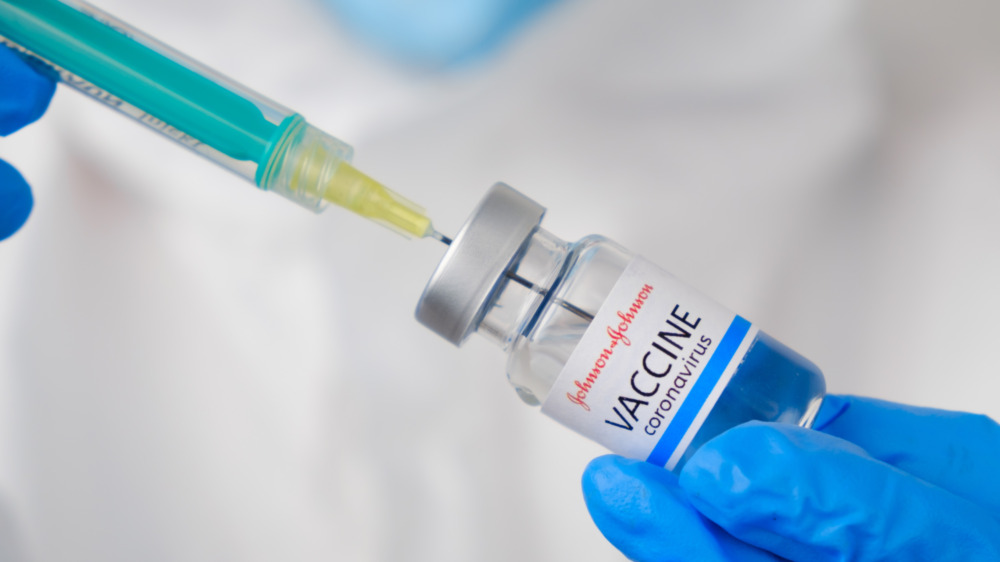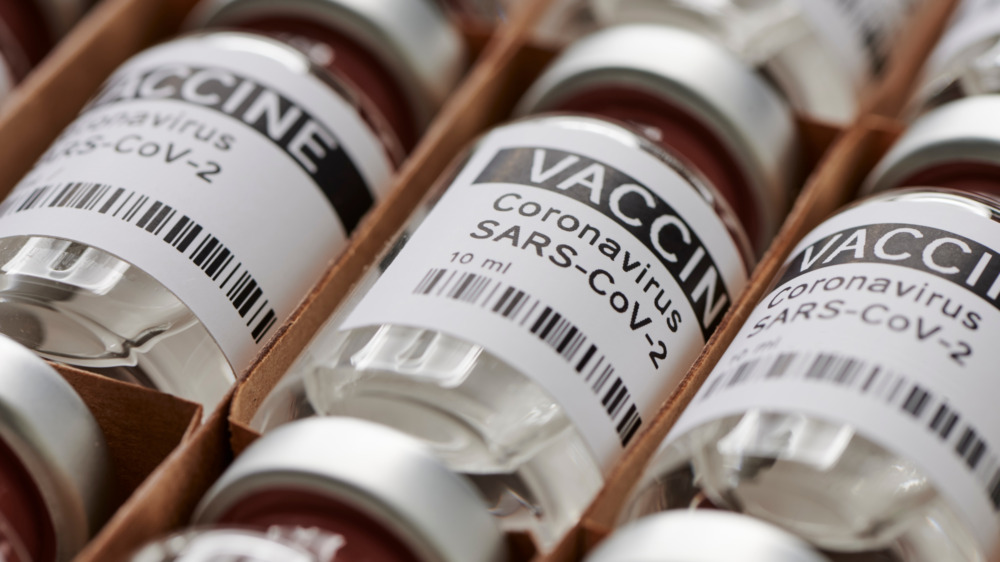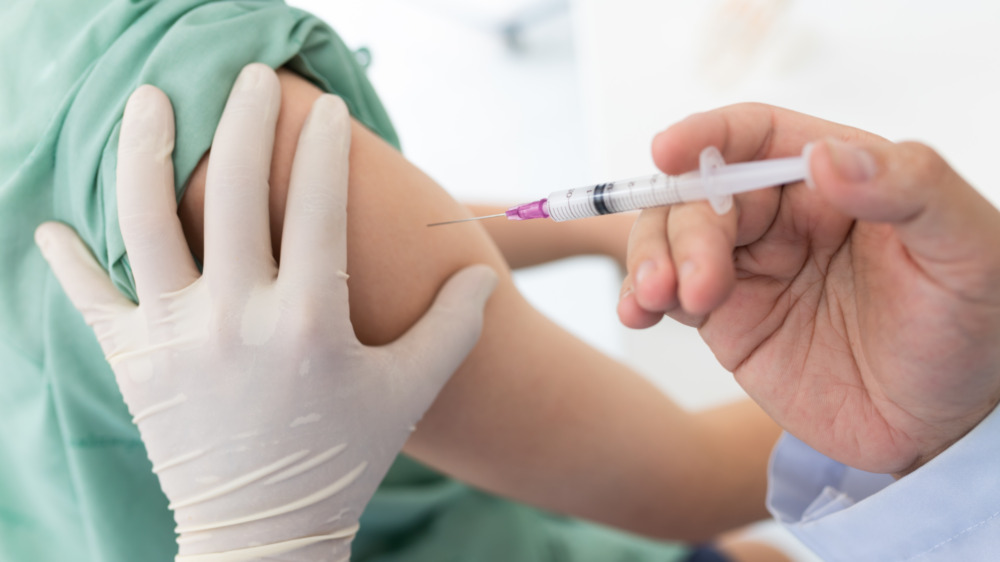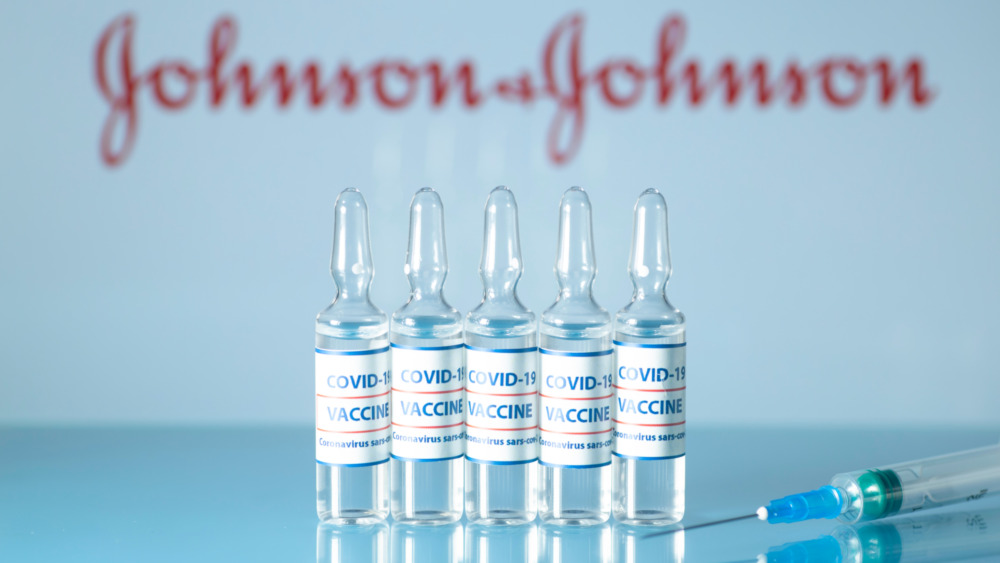How Real Is The Risk Of A Blood Clot From The Johnson & Johnson Vaccine?
The U.S. Centers for Disease Control and Prevention (CDC) and the U.S. Food and Drug Administration (FDA) have recommended pausing the use of the Johnson & Johnson COVID-19 vaccine out of "an abundance of caution," after six cases of a "rare and severe" blood clot type were reported in the U.S.
More than 6.8 million doses of the Johnson and Johnson vaccine have been administered throughout the U.S. so far (via FDA). Federal health channels have stopped administering the Johnson & Johnson vaccine for the time being, and it is recommended that states do the same, according to CNN.
The recommendation centers on the cases reported in 6 women between the ages of 18 and 48 occurring six to 13 days after the Johnson & Johnson vaccination, according to the FDA and CDC joint statement. The cerebral venous sinus thrombosis (CVST) blood clot type was seen combined with low levels of blood platelets, or thrombocytopenia. This affects the treatment of the blood clot, as the typical blood clot treatment of using the anticoagulant drug heparin may be dangerous, officials said.
How rare are blood clots?
Although this can sound alarming, the statement reads that "the adverse events appear to be extremely rare." The CDC will meet with the Advisory Committee on Immunization Practices (ACIP) on Wednesday, "to further review these cases and assess their potential significance." It will also be reviewed and analyzed by the FDA.
Experts have echoed the rarity of these Johnson & Johnson vaccine blood clot cases. Dr. Carlos del Rio, executive associate dean of the Emory University School of Medicine at Grady Health System, described the cases to CNN as a very rare event, adding "you're talking about one per million, and when you give millions of doses of vaccines, you will see events like this that you couldn't see in the clinical trial just because you didn't have millions of people enrolled."
Reports of the risk of rare and severe blood clots related to the Johnson & Johnson COVID-19 vaccine are present, there are also blood clot risks present for many conditions.
Specifically, this type of blood clot (CVST) is described by health officials as extremely rare in the general population, affecting about 5 people in 1 million each year (via Cedars Sinai), which is actually more than reported by the CDC and FDA for his event. But as many as 900,000 people, or 1 to 2 per 1000, could be affected by deep vein thrombosis (DVT) or pulmonary embolism blood clots each year in the US (via CDC).
Conditions with heightened risks for blood clots
For example, 1 in 1,000 people per year taking birth control pills will develop a blood clot, but the risk heightens for those with thrombophilia or a history of thrombosis (via National Blood Clot Alliance). One study found that the risk of CVST increased more in women taking oral contraceptive pills (via ScienceDirect).
The CDC reports pregnancy, childbirth, and up to three months postpartum can also increase the risk for DVT blood clots. Pregnant people are five times more likely to experience a blood clot as compared to those who are not pregnant. Pregnancy and the first few weeks after delivery is also listed as a risk factor for a CVST blood clot (via Johns Hopkins Medicine).
Smoking also raises the risk of excessive blood clotting, according to the American Heart Association. One study found that participants who smoked 25 cigarettes a day or more had a 52 percent greater risk of developing venous thromboembolism (VTE) than non-smokers (via Reuters). Blood clots are also a possible long-term effect of the COVID-19, as the virus can make blood cells more likely to clump and form clots (via Mayo Clinic).
More information on vaccine and blood clots forthcoming
As health officials investigate the potential adverse effects of the Johnson & Johnson vaccine, the risks of the vaccine and blood clots, specifically CVST, will become more clear. The pausing of use during the investigation allows the health care community to become aware and prepare to respond to adverse effects with alternative treatments, according to health officials.
In their statement, the CDC and FDA urged people who have received the Johnson & Johnson vaccine and have developed a severe headache, abdominal or leg pain, or shortness of breath within three weeks of their vaccination to contact their health care provider. Adverse events should be reported by health care providers to the Vaccine Adverse Event Reporting System.
Experts still recommended getting the COVID-19 vaccine, CNN reports.




